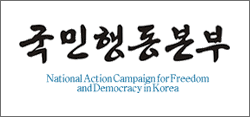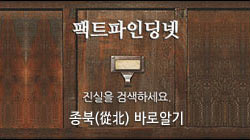by Kim Pyung-woo (Attorney and former head of Korean Bar Association)
U.S. President Andrew Johnson was impeached after he was accused of sacking his secretary of war after two thirds of Congress overruled the president's veto power and revised a law to require congressional approval for the head of state to sack his secretaries of state. Following the U.S. Civil War, the job of the secretary of war shifted from finding sources of funding for the war to implementing restoration projects. The actual cause was a standoff between the president and the Senate majority over how to rehabilitate the devastated southern states and over the treatment of freed slaves. From that perspective, it was a conflict of policies.
The situation was different for President Bill Clinton. On the surface, Clinton faced impeachment on charges of perjury and obstruction of justice. But the actual problem was an affair the married, 49-year-old president had with a White House intern in her early 20s named Monica Lewinsky. The U.S. is a nation based on Christian principles and extramarital affairs are seriously frowned upon. And sex in the workplace involving a younger female employee is considered a social taboo. In legal terms, such acts constitute sexual harassment. Although not subject to criminal charges, such an offense violated the core Christian moral principles of American society and greatly disappointed the public. From that perspective, Clinton's impeachment took issue with the president's moral standards.
On the surface, President Roh Moo-hyun faced impeachment on charges that he violated the duty of public officials to maintain political neutrality. But the actual problem was with his high-school education level in a society that prizes university degrees or higher academic achievements, and the fact that a high-school grad beat a rival candidate who graduated from the prestigious Seoul National University and went on to pass the bar exam to become a Supreme Court justice. That fact alone seriously hurt the pride of conservative members of the National Assembly. On top of that, Roh's thick Gyeongsang Province accent and unrestrained comments supporting progressive policies appear to have further irked conservatives, prompting them to take steps to impeach him. Roh's inclinations to make anti-American comments and rumors that his father-in-law used to be a communist did not help him win points among conservatives either. All of these factors played a role in prompting lawmakers to seek to impeach Roh and hold new presidential elections. The impeachment bill was primarily based on discriminatory attitudes toward the president in light of his academic and social background as well as manner of speech that did not make him blend in with conservative lawmakers. The phenomenon was reminiscent of the factionalism that was rampant during the Chosun dynasty based on groups hailing from different schools of Confucian thinking and geographic regions of Korea.
On the surface, President Park Geun-hye is facing impeachment on charges that she received around W70 billion in bribes from major business conglomerates. If that is true, she should be sent to jail immediately rather than face impeachment. But such charges are completely fabricated. The money was donated to non-profit foundations and those organizations still possess the money. A few past Korean presidents established non-profit foundations and received donations from major business groups. No violations of the law and no morally questionable acts have been committed.
From the perspective of the writer, the actual reason behind Park's impeachment stems from her lame-duck status during the final year of her single, five-year term and the fact that she is a single woman with no family, friends or close coworkers. Opposition party lawmakers appear to be using those traits of the president to wrest power from her. Park's impeachment does not stem from clashes over policies, moral conflict or cultural differences. It involves an unethical attempt to wrest control of the government from a single woman by pinning ludicrous charges on her and driving her out of office.
Let's compared the impeachment processes in Korea and the U.S. The U.S. president serves a four-year term, while a House representative's term lasts two years and six years for senators. House representatives are elected every two years. There are 435 House representatives and each state elects a number of officials based on their population ratio. That is why the lower house of the U.S. parliament is called the 'House of Representatives.' Democrats and Republicans hold a majority seat shifting places periodically. The House of Representatives takes more than six months to table and ratify an impeachment bill. Representatives who initiate the impeachment seek out agreements from their colleagues. If their numbers reach a certain level, a special committee deliberates on the impeachment motion, which is then sent to the judiciary committee. That committee seeks the advice of legal experts to determine the legitimacy of the charges. The initial focus is to look for precedents. An impeachment motion gains legitimacy if there is a similar precedent. Without a precedent, the impeachment lacks authority and it becomes extremely difficult to mobilize the support of the Senate in a society that considers precedents as law.
The next important factor is evidence. According to the U.S. constitution, only admissible evidence is allowed to be presented in front of a court of law. The House judiciary committee must determine based on the opinions of advisors that a piece of evidence is legitimate. Only then can the evidence be used in the impeachment trial. If the judiciary committee writes up the impeachment motion, it is presented before a plenary session and put to vote. The vote results are open to the public and members of the public and the press are allowed to observe the ballot process. Representatives gather the opinions of residents in their constituencies and goes public with the views they have collected. It is quite different than the process in Korea where a handful of senior lawmakers collect resignations en masse before putting the impeachment motion to vote. If that happens in the U.S., the news media would not sit still. Such acts will be viewed as anti-democratic and be reported to the House ethics committee.
If the impeachment motion is upheld by a majority (218 votes) of the members of the House of Representatives, it is handed over to the Senate. The U.S. strictly adheres to the principle of innocence until proven guilty. As a result, the president's official powers are not suspended simply because he has been accused. The president is not subject to any disadvantages until the Senate reaches a decision, while nobody is allowed to treat the official being impeached as being guilty. The public, the news media nor the House of Representatives places significant importance on the impeachment bill. The focus in on the decision of the Senate. The U.S. public and news media simply wait until the Senate reaches a decision. There fanatical outbursts lauding the public's protests as a 'democratic revolution' or 'popular uprising' as seen in Korea.
Let us look at the impeachment process in Korea. Impeachment proceedings have taken place in Korea only during times when the opposition parties accounted for a majority of the seats in the National Assembly. When a president's mistakes lead to weakened approval ratings, the opposition camp, which has gained control over the National Assembly, puts together an impeachment motion in less than a month. There is hardly any process in which a lawmaker tabling the impeachment motion presents it to his or her colleagues and the public to view in order to hear their thoughts. The impeachment motion is put together as soon as the senior members of the opposition party agree to pursue steps to impeach the president. And about a week later, the motion is put to vote, which last just a few hours. The whole process lasts just around a month. Each charge listed on the impeachment motion is not put to vote individually, but the impeachment motion is put to vote as a package. There is no debate held prior to the vote. I wonder if there is a process where the impeachment motion is presented for review by legal experts. There appears to be no step to investigate the charges. There also appears to be no effort to investigate the evidence being presented or to consider their admissibility in court. And there is no process of hearing the views of voters or to explain the process to the public. How many Koreans do you think actually read the impeachment bill against Park? I wonder how many lawmakers even read the impeachment bill.
Lawmakers prepare their resignations en masse before voting on an impeachment bill. It is a de-facto pledge that they will not betray their party. After the vote, the side that won belts out victory chants and offer toasts. They appear overjoyed to have bagged the president and believe that the reins of government have now fallen into their hands. In contrast, the losing side rip their clothes, destroy their desks and wail in sorrow. Their anguish stems from having lost control of the government. Neither side is aware of the fact that the impeachment bill is merely a list of charges and not a ruling, while the nine Constitutional Court justices are responsible for delivering the final verdict. Our lawmakers seem to be oblivious of the Constitution. And the news media is no different. The only thing they see is a power struggle. They are not engaging in politics, but war. The entire process is reminiscent of a turf war between the Japanese yakuza. What we are seeing is a reprisal of the factional feuding Chosun dynasty bureaucrats were famous for. This is very depressing. Korea is said to rank among the world's top 15 countries in terms of its economic size. But it ranks among the bottom in terms of its politics. In fact, Korean politics appears to be trapped in the 18th century. We are in no position to point fingers at North Korean politics.
Jan. 9, 2017
미국의 탄핵 제도에 비춰본 박근혜 대통령 탄핵(2)
미국의 앤드루 존슨 대통령의 경우, 議會(의회)가 대통령의 거부권 행사를 제압하고 3분의 2의 특별결의로 입법한 ‘장관 임기법’(장관의 해임에 국회의 승인을 요한다는 내용)을 존슨이 위반하여 전쟁 장관(남북전쟁 중 전쟁비용의 조달이 主임무였던 장관으로, 전쟁 후에는 전쟁복구 플랜을 시행하는 게 主임무였다)을 해임한 것이 표면적인 탄핵사유이다. 실제 사유는 남북전쟁 후 폐허가 되다시피한 남부의 복구와 해방노예의 대우를 어떻게 할 것인지를 놓고 대통령과 議會 다수파가 대결한 것이다. 그런 점에서 정책대결이었다.
클린턴 대통령의 경우는 다르다. 표면적으로는 僞證(위증)과 사법방해의 혐의로 소추되었지만 실질적으로 클린턴 대통령이 49세(당시)의 결혼한 남자로서 부인 힐러리 몰래 20대 초반의 백악관 인턴 여직원 르윈스키와 婚外(혼외)정사를 벌인 것이 문제였다. 미국은 기독교 국가로서 기혼남자의 婚外정사는 심각한 부도덕이다. 특히 직장에서 비서 등 자기 아래에 있는 여자를 건드리는 것은 사회적으로 절대 금기이다. 법적으로 성희롱이다. 형사범죄는 아니라도 미국의 建國정신인 기독교의 핵심 도덕률을 위반하여 미국 국민을 크게 실망시킨 것이다. 그런 점에서 대통령 개인의 도덕성이 문제된 것이다.
한국을 보면 노무현 前 대통령 탄핵소추의 경우, 표면적으로는 공무원 중립의무 위반이다. 그러나 실제로는 高卒(고졸) 출신, 그것도 商高(상고) 출신이 대법관 출신의 엘리트(이회창) 후보를 선거에서 누르고 대통령에 당선된 것부터가 보수적인 우파 국회의원들의 자존심에 크게 상처를 냈다. 거기다가, 盧 전 대통령은 억센 경상도 사투리로 법과 맞지 않는 (보수 성향 의원들이 듣기에 거북한) 발언을 마구 쏟아내는 것도 탄핵 요인 중 하나였다고 본다. 툭하면 反美적인 발언을 하고 장인도 공산주의자라 하니 사상도 의심스럽다고 보았다. 이런 복합적인 이유로 盧 대통령을 갈아치우고 새로 선거를 하자는 게 탄핵의 동기였다. 대통령의 학벌, 말버릇 등이 다수의 보수파 국회의원들과 안 맞으니까 쫓아내자는 다분히 신분·지역 차별의 감정적인 탄핵소추였다. 조선시대 老論(노론)·少論(소론)·北人(북인)·南人(남인)이 서로 學統(학통), 緣故(연고) 출신 지역이 다르다는 이유로 갈라져 상대방을 탄핵하며, 당파싸움한 것과 크게 다르지 않았다.
박근혜 대통령의 경우를 보자. 표면적으로는 朴 대통령이 기업들로부터 약 700억 원의 뇌물을 받았다는 게 핵심이다. 만일, 그것이 사실이라면, 탄핵이 아니라 당장 교도소로 가야 할 파렴치범이다. 그러나 이것은 완전한 허구이자 거짓말이다. 돈이 공익재단으로 갔고 지금도 공익재단에 있다. 몇몇 전직 대통령도 공익재단을 만들어 기업의 出捐(출연)을 받았다. 違法(위법)은커녕 도덕적으로도 하등 잘못이 없다.
필자가 보기에 朴 대통령에 대한 실질적인 탄핵사유는, 朴 대통령이 임기 말인데다가 평소 가족도, 친구도, 동료도 없는 외톨이 여성이라고 얕본 것이 주된 요인인 것 같다. 그로부터 정권을 빼앗자는 (야당 등의) 계산이 작동한 것으로 추측된다. 朴 대통령 탄핵소추는 정책대결도 아니고, 도덕성 싸움도 아니고, 문화 차이도 아니었다. 약자인 독신 여성을 얕보고 터무니없는 죄를 뒤집어 씌워 쫓아내 정권을 빼앗으려는 파렴치하고, 부도덕한 정권강탈인 셈이다.
탄핵소추의 과정을 미국과 비교하여 본다. 미국은 대통령의 임기가 4년이고, 하원의원은 2년, 상원의원은 6년이다. 하원의원들은 2년마다 선거를 하므로 교체가 잦다. 미국의 하원은 정원이 총 435명인데, 각 주에서 인구비례로 할당된 숫자의 대표자를 뽑아 연방정부의 議會(의회)에 보내는 형식이다. 그래서 下院의 영문명은 ‘The House of Representatives’이다. 공화당과 민주당이 주기적으로 엇갈리면서 다수를 차지한다. 하원의 탄핵소추는 發議(발의)부터 議決(의결)까지 6개월 이상 걸린다. 탄핵을 발의(initiation)하는 의원이 동료들에게 제안서를 보내 贊同(찬동) 의견을 받는다. 그 숫자가 상당해지면 특별위원회가 열려 심의(deliberation)를 한다. 그 다음 법사위원회에 제안서를 보낸다. 법사위원회는 법적으로 탄핵사유가 되는지 법률 전문가의 의견을 받는다. 먼저 先例(선례)부터 검토한다. 先例가 있어야 탄핵사유의 정당성이 뒷받침(support)된다. 선례가 없으면 뒷받침할 근거(authority)가 없는 것이 되어 先例를 法으로 생각하는 미국 문화에서 상원을 통과하기 어렵게 된다.
그 다음이 증거이다. 미국은 헌법상 적법증거가 아니면 법정에 제출할 수 없다. 법사위원회가 전문 변호사의 자문을 받아 적법증거라고 인정해야 탄핵안에 증거로 인용, 첨부된다. 법사위원회에서 표결하여 탄핵안이 成案(성안)되면 本회의에 넘어가 항목별로 贊反(찬반) 투표를 한다. 물론 공개투표이고 방청석에 국민들과 기자들이 참여하여 방청한다. 의원들은 자기 선거구민들의 의견을 수렴하여 贊反의사를 공개한다. 한국처럼 당 간부들이 의원들의 사퇴서를 일괄하여 받아놓고 표결에 들어가는 야만적인 의사 강요는 없다. 만일 그렇게 하면 여론에서 가만 두지 않을 것이다. 非민주적인 정치행위로 간주되어 의회윤리위에서 제명될 것이다.
하원에서 과반수(218표)의 찬성을 얻으면, 탄핵안이 최종 확정되어 상원에 넘어간다. 미국엔 헌법상 무죄추정의 원칙이 있어 下院의 탄핵소추(Accusation)가 있다하여 被탄핵자의 직무가 정지되는 일은 없다. 上院의 결정이 있기까지는 아무런 불이익이 없고, 누구도 被탄핵자를 죄인 취급할 수 없다. 언론이나, 국민들도 하원의 탄핵소추 그 자체에 중대한 의미를 부여하지 않는다. 관심은 오로지 上院의 결정이다. 그때까지 묵묵히 기다리며 지켜보는 것이 미국 언론과 국민들의 법치의식이다. 한국처럼 ‘민주혁명이다’, ‘시민혁명이다’ 하는 식의 호들갑이나 선동이 없다.
한국의 탄핵소추 과정을 본다. 그간 한국의 탄핵논의는 與小野大(여소야대) 국회에서만 있었다. 대통령의 과오나 실수가 생겨 여론이 나빠지고 인기가 떨어지면 국회를 장악한 야당은 한 달도 안 되어 탄핵안을 작성한다. 탄핵안 成案(성안) 前에 발의하는 의원이 제안서를 작성하여 동료 의원과 국민에게 회람시켜 의견을 수렴, 찬성의원을 모집하는 절차가 거의 없다. 대개 당 간부회의에서 탄핵지시가 나오면 그날로 탄핵안이 작성된다. 그리고 약 일주일이면 표결에 들어가 단 몇 시간 만에 끝난다. 全과정이 길어야 한 달이다. 탄핵사유를 항목별로 투표하는 게 아니라 일괄하여 贊反(찬반) 표결이다. 투표에 앞서 토론하는 절차도 없다. 탄핵안을 작성하면서 법률 전문가의 법률의견을 듣는 절차가 있는지도 궁금하다. 先例를 조사하는 절차도 없는 것 같다. 증거를 조사하거나 증거의 적법성을 검토하는 절차도 없는 것 같다. 선거구민들의 의견을 수렴하는 절차도 없다. 탄핵안을 국민들에게 상세히 설명해주는 절차도 없는 것 같다. 박근혜 대통령 탄핵소추장을 읽어본 국민이 몇 명이나 될까? 국회의원조차도 몇 명이나 읽었을지 의문이다.
의원들은 탄핵소추안 표결에 앞서 비장하게 일괄사표서를 작성하여 당 간부에게 제출한다. 일종의 배신을 안 한다는 誓約(서약)이다. 표결이 끝나면 승리한 측은 환호를 부르며 축배를 든다. 대통령을 잡은 것이 마냥 즐겁다. 이제 정권을 잡았다는 환호이다. 반면 패배한 측은 자기 옷을 찢고, 책상을 부수고, 엉엉 울고 그야말로 初喪(초상)집이다. 정권을 뺏겼다는 분노와 허탈감 때문이다. 어느 쪽에도 헌법상 국회의 표결은 단지 탄핵소추, 즉 고발이고 판결은 아니며, 판결은 헌법재판소의 아홉 명의 재판관이 내린다는 생각은 염두에 없다. 우리나라 국회의원들 머리속에는 헌법이 없는 것 같다. 언론도 마찬가지이다. 오로지 권력싸움뿐이다. 정치를 하는 게 아니라 전쟁을 하는 것이다. 나쁘게 말하면 야쿠자들의 ‘텃밭 쟁탈 패싸움’이다. 조선시대 양반들이 하던 四色(사색)당쟁을 그대로 되풀이 하고 있다. 슬프다. 한국 경제가 세계 10~15位라 하는데. 정치는 완전히 바닥이다. 18세기에서 멈춘 듯하다. 북한을 흉 볼 것도 없다.












 Kim Pyung-woo
Kim Pyung-woo







 트위터
트위터 페이스북
페이스북 네이버
네이버




























